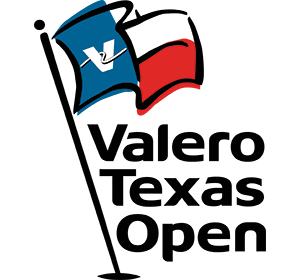Media Center Interviews
March 30, 2021
Pre-Tournament Interview with Jordan Spieth
JACK RYAN: Jordan, coming off an appearance in the Round of 16 last week at the WGC Dell Technology Match Play, if we can just get an opening comment on your start here at the Valero Texas Open.
JORDAN SPIETH: Yeah, it's kind of very convenient, we were only about an hour, hour 20 away. Spent kind of the weekend hanging in Austin and then came down I guess Sunday evening and tested.
So, excited for this week. Obviously leading into next week, so trying to just keep progressing, keep working on what I'm working on and try to get myself in contention and have a chance to win on the weekend.
JACK RYAN: With that, we'll open it up to questions.
Q. You mentioned next week obviously. Curious, how would you describe where you're at this week going into the Masters compared to, say, the last couple Masters?
JORDAN SPIETH: Yeah, I think definitely in a better place, feel good tee to green. Trying to continue to progress and get even better and tighter, especially with wedge distance control. I've driven the ball really well the last few tournaments on some pretty difficult driving golf courses.
But for me, I've got to get a lot of work in on my short game. I've hit the ball better the last few tournaments than I did even on the West Coast, but just kind of lost a little confidence at THE PLAYERS after not seeing any putts go in. Kind of started to feel a little bit better throughout it throughout the Match Play, but just got some work to do on my stroke and then just dial in some short game shots that I may just have taken my mind a little off of with a lot of swing work.
Just fine tuning the short game is going to be kind of No. 1 priority. Any kind of technique work on the swing, try and kind of get that out the next couple days and then spend the next 10 just in game mode, similar to what I've done in previous years.
But yeah, I feel in a better place than the last -- leading into the last couple Masters. You know, you go there, I expect it to be a very different Masters than what we've seen in the last couple. Rumors that I've heard already are that it's already firm and fast two, three weeks out from the golf tournament. I think it will play significantly different and I'm looking forward to that challenge.
Q. Jordan, thanks for doing this. I'm just curious with regard to the last Masters last year in November, how different that was, what your anticipation was leading into it and kind of what you came away -- what were your memories of the November Masters, as unique as it was?
JORDAN SPIETH: Yeah, it was different, right? I mean, the patrons are such an integral part of that tournament that without them, without the roars, the golf course certainly played very different from what we're used to seeing, but there's really nothing you could do about it. And it was still a phenomenal golf course in unbelievable shape with its own unique set of challenges with how soft and fast the greens were, having to kind of take extra club and saw them off when some years you're trying to throw something way up in the air to try to get it to stop. It presented its own unique set of challenges, but all in all, you kind of got a little bit away with more. So going into it, it was kind of almost exciting. It was like, wow, I can look at No. 11 as potentially a birdie hole because my 5-iron will stop where it lands with the conditions we had.
It was exciting in that sense, but without the patrons, just wasn't the same. I'm glad we're able to at least have, to whatever percentage it will be, patrons that are there will make it feel like normal even if it's not at full capacity. I'm looking more forward to this one than I was maybe in November, but the Masters is the Masters. They give out a jacket at the end of it and it's a dream-come-true situation. It doesn't matter when it's played and who's there, it's you against the golf course and the field.
But that Sunday I teed off on the back nine late and maybe with the second- or third-to-last group off the front nine, and I know what that feeling's like off the front nine normally and to just kind of see it the way it was was, you know, hopefully it doesn't happen again, but it was just kind of eerie and quiet. This year should feel a lot more normal.
Q. If I could just jump in with a follow-up on yourself. You've mentioned a moment ago to Brian how much better you're feeling going into this form-wise and mentally, whatnot. Are you one of these people, because of the success you've had at Augusta, like a Phil, for example, who always talks about when he drives down Magnolia Lane, he just gets this feeling of comfort because the course suits him and he's had success there? Are you somebody that automatically feels that as soon as you get there?
JORDAN SPIETH: Yeah, I think so. It's normally Monday for me when I get there. Drive down Magnolia Lane, for me it's like, "It's go time." Almost like regardless of form, regardless of if you just won or if you've missed the previous cut, it really makes no difference to me in my confidence level when I pull into Magnolia Lane. It's just such a unique golf course in that it's a lot of shot-making versus what you get in a lot of other places. And then the greens require just so much imagination, it almost just feels like a totally different game sometimes there. You know, I've had chances to win after, like I said, missing the cut in the previous week, like I think in '14 and '16, and I've come in off of a couple seconds and played well as well.
So I'm looking to build up a little bit to be able to taper down next week as far as the amount of golf balls hit and the amount of focus on technique so that when I get there, I can just kind of go through the gates of Magnolia Lane, go down that first day and just say, all right, we're here to play this week.
Q. Hey, Jordan. Let's see, you used to putt, and I don't think you do right now but that's partly what I'm wondering, you would look at the hole when you were hitting short putts. I was wondering if you still ever do that and if not, why you went away from it.
JORDAN SPIETH: Yeah, I haven't really been doing it. I used to do it because it would take kind of the thinking about kind of the start line out of it, instead just be outwardly focused. Then I got to where I think in like 2017, '18, 2018, my eye line and alignment got really off to where I wasn't making them when I was looking at the hole, so I got away from that.
Now I'm -- yeah, in an ideal world I don't need to do that. That was just kind of a compensation to just be more feel biased and it was kind of a good weapon to have. I haven't really needed to use it lately, I've been getting through the strokes fine and hitting my lines regardless of the length of putt, just been -- so, yeah, I don't know. It's just kind of something that might be on and off here and there.
Q. And then you throw left handed, correct?
JORDAN SPIETH: Yes.
Q. Do you think that that affects your golf swing in any interesting way?
JORDAN SPIETH: I don't think so. I think -- I think it has maybe something to do with putting and a little bit on kind of wedge play just using my left hand through the ball to hold -- I mean, when I'm playing well, when I'm hitting wedges well, chipping well, putting well, there's a lot of kind of covering the ball and holding through with my left hand versus any kind of rotation and flip like some guys do. So I think just that reliance on that left hand for my feel on short game is maybe the only thing I can think of. Other than that, no. It probably would be better for me to be right handed for the golf swing just because of the sling that you use, but it could be advantageous on the short game.
Q. Lefties play well at Augusta.
JORDAN SPIETH: Yeah, I think that has to do with the fact that on a lot of those -- quite a few of those par 3s are left-handed par 3s where if you kind of miss it out to the left, it's going shorter. If you miss it out to the right, it's going further. So holes like 12 and 6 and 4 are just massively better holes for left handers, not throwing-wise, but golfing left handers, the physics of it.
Q. Jordan, I just wanted to ask you about if you could talk a couple minutes about this course here and this tournament, your feelings about each of them.
JORDAN SPIETH: Yeah, the golf course here is really challenging. It's very rare you get to play it without a 15-mile an hour wind and it looks like we're going to get that again this week. It's just a really difficult driving golf course. You can't make many mistakes off the tee, you've got to be hitting fairways because it's not just like bunkers on one side. A lot of holes you have that rocks and that brush off both sides of the fairway. So you've got to drive it straight in the wind and then from there, you know, it gets dicey in different places you miss around these greens. So you can feed balls into holes and make birdies, but if you miss the spots, you can get into some trouble. Tee to green it's just a very fun challenge.
The closing holes are awesome. You've got an opportunity, you've got a really tough par 4 in 15 and then you go to 16, that kind of cool hole with the bunker in the middle, and then two birdie opportunities to finish. You just get kind of a mix and match of trying to stay alive for some of the course and then trying to take advantage of other parts of the golf course.
The tournament itself, I've loved it. I've felt a lot of support here, a lot of University of Texas support coming from Austin and just a lot of Texas in general. Texans like to root for Texans is what I've found over the years here, whether it's Ryan Palmer, guys that I've been paired with in tournaments like this in the past. It's a blast to play in the state of Texas, I've always really, really enjoyed that extra support.
Q. And just to follow up, I know you want to win and play well, but is it just as important for you just to play -- are you one of the guys that likes to play the week before the Masters?
JORDAN SPIETH: I've played every time into the Masters. It wasn't -- it's not like I feel like I have to do that. I just felt I'm in a good spot. Each tournament round I'm gaining a little bit more confidence, I'm learning a little bit about kind of where things are at, and on-the-course repetitions are different than practice repetitions. So if I can just progress just a little bit that much quicker.
So a lot of it had to do with kind of the state of where I'm at right now and the idea that I feel that if I can stay the course and just get my chipping and putting moving the right direction, then I can have a chance to win this week. When you work your way into contention, that's where you start to then feel more comfortable each time you get into contention. That's always a great thing leading into a major. So all that are goals and the next couple days is about doing what I can in practice leading into that and then go out there and play.
Q. Hi, Jordan. You know, the Masters has typically been a tournament that takes experience with the golf course to win. You won at a young age and there are now a lot of players in their mid 20s or so who have proven to be serious contenders. Is wisdom about the golf course getting easier to acquire? Is your generation just faster learners or what's going on there, do you think?
JORDAN SPIETH: I think outside of Augusta National, it is getting easier to acquire with greens books, very detailed yardage books with pictures on it, on them. Then you just kind of have to recognize which side of the green to which pin is a bad miss, but you have all that information on greens books on reads that might be tricky and you have all that information in these very detailed yardage books that we carry now.
But Augusta doesn't allow those, you don't have either one of those. So if it's playing soft, if you get rain and Augusta's playing soft, I think it requires a little bit less of the course knowledge, and if it's playing really firm, I think it requires more. That's what I've found in the, whatever, seven or eight years that I've played it now in both circumstances. I've played it well both ways and I've felt like I needed to have a lot more course knowledge and focus on where that -- what shot to work into a hole to where if it doesn't quite work out, it's missed in the correct spot.
Just a lot of -- like you're obviously trying to make aggressive swings at slightly conservative targets, but you get away with more when it's a little bit softer if you're short-sided and stuff like that. I think it's going to depend on these next couple weeks leading in if they get the weather that will make the golf course really firm or if you get rain and it ends up, you know, hurting those chances.
Q. I'm curious, does it feel like your brethren, the people your age, are getting comfortable sooner than other people did at that same age?
JORDAN SPIETH: I'm not sure, I can only speak to myself on that. The only other kind of person at my age that I could maybe relate to, somebody I talk to a lot is Justin and I know that both of us kind of just come out expecting to have a chance to win, you know, wherever we've played since we were 13, 14 years old. I don't think that's any different with any of these other young guys.
And you saw some really young guys last year in the Masters in November have a chance to win with Sungjae up there, I think Abraham Ancer up there, guys who had either played it once before or hadn't played it, played the Masters.
I wouldn't be surprised going forward if you end up getting a first-time winner at some point or a number of young guys that are able to do it. Honestly, it's a tough walk. It's one of the toughest walks on Tour, so as much as that course takes out of you mentally, just being there, being the Masters, physically it can be a toll, too. So you would think that guys that are kind of in their mid 20s would be in the best position physically, but I mean, guys now are taking care of themselves to where, I mean, look at -- not to call Lee Westwood not in his mid 20s, but he's not in his mid 20s and he's able to compete week in and week out on very difficult tracks. So golf's in a cool place right now. I think for a tournament like the Masters someone could be 21, 22 and win and somebody could be 45 and win, and everywhere in between. You could name off a number of places that going in you could say, yeah, I'm not surprised that that guy won.
Q. Jordan, we talked amongst ourselves about how weird it is to be going back to the Masters five months after we were just there, but I'm just curious if you think the players feel the same way. Does it feel weird to you or is it just a normal Masters?
JORDAN SPIETH: I think this one feels almost like a normal Masters. I kind of forgot that we didn't play it last April and I kind of looked at last November as just a bonus, like a bonus Masters. I think once we're on the grounds, the fact that it wasn't a full year, but with patrons allowed, I think once you start seeing crowds in the practice rounds like other years, it will start to almost again feel like November was just the odd man out and it will feel like just a normal Masters just leading into it.
Once the tournament starts, I'm sure it will feel weird again. I think it's just kind of -- I think all players are really excited that we were able to play it and be able to play two Masters in five or six months. I mean, that hopefully will never happen again. As many times as we can go play a tournament on that golf course, I'm going to be excited. It might feel a bit odd to be there so soon, but guys take a lot of different trips and the only one I kind of feel bad about for is Dustin. Unless he were to repeat, he didn't get the jacket for more than five months unless they let him keep it until next November. That's kind of a bummer for him. Yeah, it will be odd, but I think it will feel more just back to normal.
Q. And the other thing, you were downstairs in the locker room for two years, you've been upstairs ever since. What's the biggest difference, biggest perk?
JORDAN SPIETH: I think it's more just the bragging rights, walking off the practice round greens saying, "Oh, you guys are going over there? I'm going to go over here." Great food, same lockers. I mean, I get to share a locker with Arnold Palmer, that's obviously a perk. Other than bragging rights, I mean, there's no special juice they give you up there that makes you play better or anything like that. It's just kind of a cool, unique room to be in where you walk in and you might see Jack Nicklaus in there on Thursday or Friday and he might just give you a pointer or something for that day. You kind of run into those opportunities that you wouldn't get if you weren't up there.
Q. Jordan, by any chance have you been to Augusta since November?
JORDAN SPIETH: I went in December. I do a trip every December, but I hadn't been since then. Typically make a round there in March, but I didn't do it this year with the schedule I played. I've only had one week off after three- and four-week stretches, so I didn't get the chance to do so this spring.
Q. And just, is there any difficulty at all playing this week and not looking forward to next week or not thinking ahead and getting ahead of yourself?
JORDAN SPIETH: I don't think there's -- no, I mean, I don't think I get ahead of myself. I think it's all planned to peak for the majors. So it's certainly on my mind to be progressing towards something, but I'm trying to -- the best way to prepare for next week is to win this week. That's the most confidence you can gain out of this week is to win. Looking forward to next week only drives me more for this week, so I don't think there's difficulty in letting my mind wander and having that affect in any negative way. If anything, it can only drive me to do a little bit more this week to taper off next week.
JACK RYAN: Jordan, those are all the questions we have. We appreciate your time and best of luck this week.
















